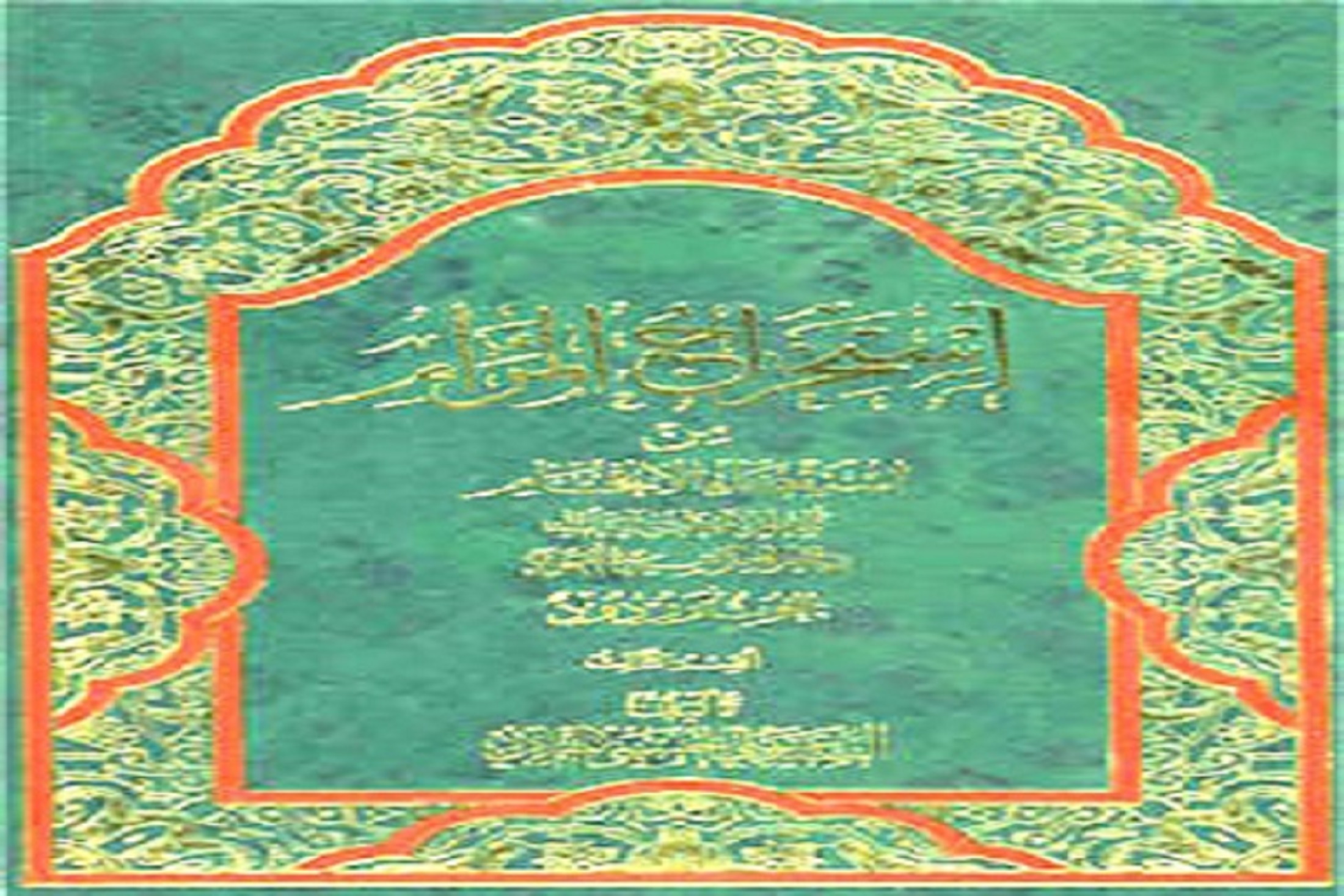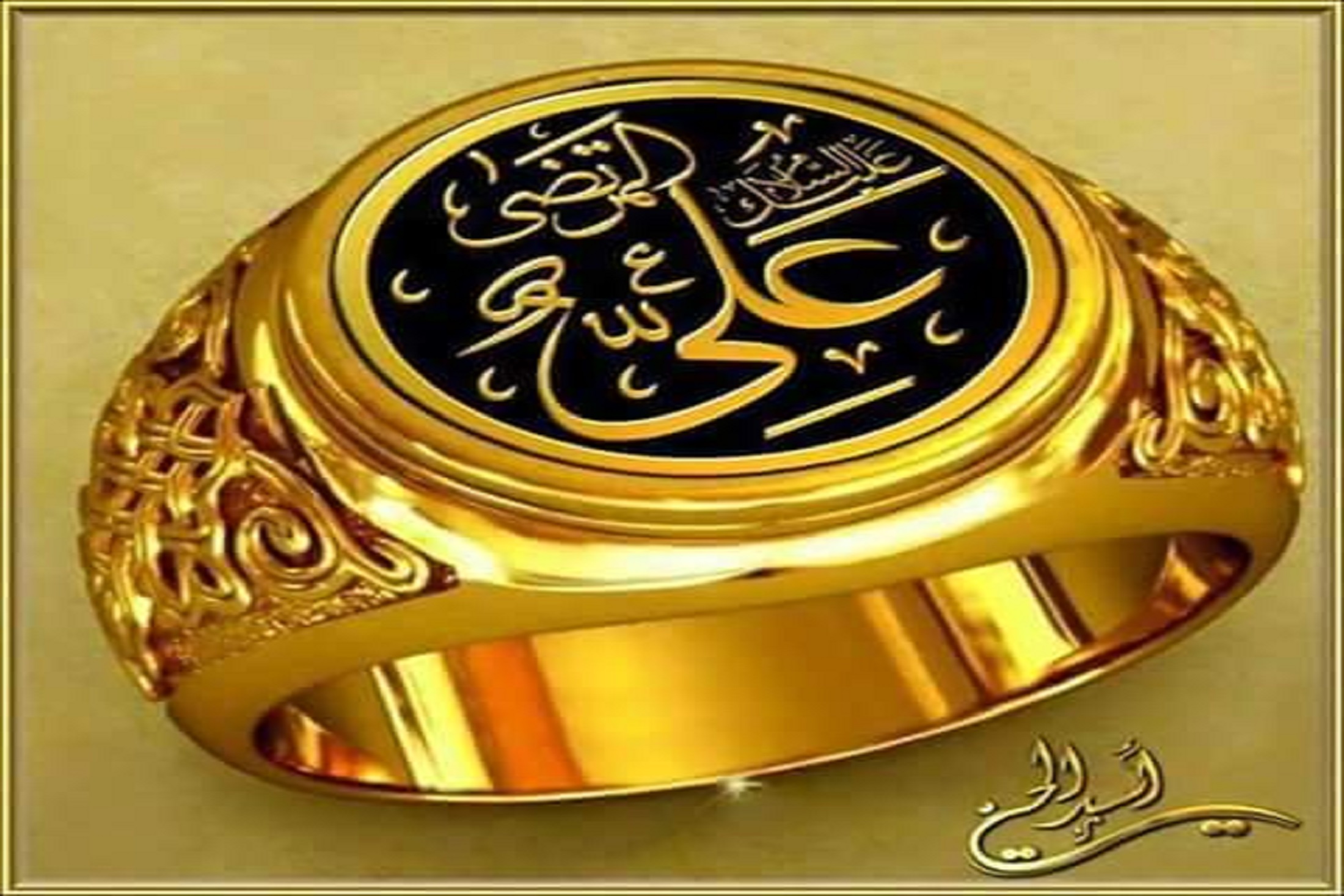Book – Istiqsaa-ul-Afhaam by Allamah Sayyad Hamid Husain Hindi
By the Grace of Allah and the special blessings of Imam Mahdi (a.s.), India has always been home to great scholars from the Imamiyyah school – the true defenders of Prophet Muhammad and his progeny (a.s.). The opponents of Shias have always attacked the faith of Shias and have left no stone unturned in disparaging the Shia faith as void, whether it is done orally or through literature. At times, they have stooped as low as to kill Shias. There are many scholars who have been assassinated and executed for the work that they have done in order to defend the true Islam. Prominent among such scholars is the name of Qazi Noorullah Shurstri, who was martyred in Agra.
Another name that comes high in this list is – Shaheed-e-Raabe (the fourth martyr), Mirza Muhammad Kamil, son of Mirza Enayat Ahmad Kashmiri, whose tomb is at dargah Panja Sharif, near old Delhi railway station. He was poisoned in the year 1810 (1225 A.H.) because of a book he had written in response to Tohfah-e-Isna-Ashariyyah by Muhaddith Dehalwi.
Shaheed-e-Raabe’s book was written to defend the faith and religion of Ahle Bait (a.s.). The name of the book was Nuzhat-e-Isna Ashariyyah. He has written 68 books on various topics. We can say that many Shia scholars were killed and executed but the work of the defense of Ahle Bait (a.s.) continued fearlessly.
It is our privilege to present over here, one such book compiled by one of modern day Shiism’s greatest son.
Istaqse Ifhaam: This is the book written by one of the greatest scholars of India, Allamah Sayyad d Mir Hamid Husain Ibn Sayyad Muhammad Qali Musawi Neshapuri-e-Hindi (r.a.).
He is considered to be a great scholar of Kalam (Mutakallim). He was born in Lucknow on 4th Muharram, 1241 A.H. He departed for his heavenly abode on 8th Safar 1306 A.H.
Education: He acquired education from his honorable father Allamah Sayyad Muhammad Qali Musawi. Apart from basic education, he also acquired knowledge of Ilm-e-Kalam from his revered father. The knowledge of Jurisprudence and Usool was given by Sayyad Husain Naqvi. Philosophy (Falsafa) and Hikmat was taught by Sayyad Murtuza Ibn Sayyad Muhammad while Mufti Sayyad Muhammad Abbas trained him in ethics.
Allamah Amini (r.a.) in his Al-Ghadeer has introduced him thus:
This great scholar, like his father is like a drawn sword against the enemies of Allah. And he is like the victory flag of religion. And he is one of the signs from the signs of Allah. Surely Allah has completed his proof through him and showed the evident right path. The fragrance of his book Abaqaat spread from one end of the world to the other end. And the fame of his book has spread far and wide. Whoever has read this book, has realized that it is a miracle providing light and guidance, one will never find any false path in it.
‘Isteqsa al-Ifhaam Wa Istifaa-al-Inteqam fi Muntah al-Kalam’ is the complete name of the book. The name itself explain the purpose of writing this book.
An important point:
Before we proceed with the article, it is important to mention that the original book is unavailable. Although considering the significance of this book, the famous Shiite scholar Sayyad Ali Hussaini Milani has written and printed his research work on this book, which is based on three volumes, named as Istekhraj al-Maraam min Isteqsa al-Ifham – Aim and meaning of the book Isteqsa al-Ifham. Hence we take assistance from this book to introduce ‘Isteqsa al-Ifhaam wa Istifaa al-Inteqam fi Muntah al-Kalam’
Now let us see the meaning of the original book.
Isteqsa – To reach till the root of the problem
Ifham – To make the opponents quiet by providing the proof
F-H-M – To make someone quiet by providing the answer.
F-H-M has many meanings, such as to blacken someone, to become black. That is the reason that coal is also termed as “Fahema” while the seller of coal is called as “Fahhaam”.
Nevertheless, the term ‘Isteqsa’ with ‘Ifhaam’ means to make someone quiet by providing the evident and sufficient arguments is the closest in meaning. This is also evident from the complete name of the book.
Ayatullah Milaani mentions about the title of the book as follows:
The author has named the book thus in order to point out the two arguments which are used and two aims of writing the book.
First aim – Giving reasons against the doubts raised against beliefs, replying to the accusations of certain scholars, discussing certain famous books of Shia scholars.
Second aim – To research Ahle Tasannun’s beliefs, traditions and jurisprudence through their books as well as to narrate historical facts of their famous scholars, and scan their books.
And the last part of the title indicates that this book aims to invalidate and counter the book of ‘Muntah al-Kalam’ written against the Shias.
The writer of ‘Muntah al-Kalam”
The writer of ‘Muntah al-Kalam’ is Haider Ali Ibn Muhammad Faizabadi. He was a Sunni Hanafi scholar. He was a Mutakallim and scholar of jurisprudence. He has penned this book in 1250 A.H. by the name of ‘Muntah al-Kalam fi Radd-e-Shia’ in two volumes.
It is worth mentioning that Haider Ali was born in Faizabad and initially trained under the guidance of Shia scholars such as Mirza Fateh Ali, Sayyad Najaf Ali and Hakeem Meer Nawab. After migrating to Delhi, he came under the influence of Sunni scholars such as Shaikh Rasheeduddin, Shaikh Rafeeuddin and Shaikh Abdul Azeez Ibn Waliullah Dehlavi.
Later on, he stayed in Lucknow for a prolonged period and was engaged in educational debates and discussions. Afterwards, he proceeded to Bhopal and stayed there for a certain period. After leaving Bhopal, he moved to Hyderabad Deccan and served as Chief Justice in the court of Nawab Mukhtar Malik. He was occupied in writing and compiling in Hyderabad. He expired in the year 1299 Hijri. He has written many books against the Shias.
Our great scholars
Our scholars are worthy of praise and we must be proud of them. They were not silent observers, rather they gave befitting replies. It is worth noting that many Shia scholars have written books against just one Sunni book. In today’s time, we feel that it is of less use to write the reply again. We feel it is not beneficial. If reply of a particular book is written, we find it pointless to write the reply of that book again.
What an incredible work our scholars have done! Respecting the honor and dignity of other scholars, they continued giving reply to the opponents. Innumerable books have been written against Tohfah-e-Isna-Ashariyyah
Their level of Wilayat
The hearts of these scholars were filled with the love of Ahle Bait (a.s.). They had sacrificed their lives for Wilayat. They were ready to face any problems and underwent difficulties without complaining. It is said about him that when his right hand got affected due to excessive writing and compiling, he used to write with his left hand. When his left hand was likewise affected, he did not stop the work, he continued the work with great vigor by dictating. May we be ransom for such a great scholar! He has blessed us by showing us the magnanimity of the Wilayat of Ali (a.s.).
Topics of “Isteqsa al-Ifham”
This book is written by Allamah Mir Hamid Hussain in Persian in 10 volumes. In the book “Muntah al-Kalam”, the author had targeted Shia beliefs and Allamah wrote ‘Isteqsa al-Ifham’ to rebut the mischievous claims of the author.
Based on the research of Ayatullah Milani, we list a few topics over here. Ayatullah Milani writes:
Faizabadi has refuted Shiite beliefs in his book. Allamah Meer Hamid Hussain Hindi has refuted his claims and brought it for discussion under the following headings:
- Distortion in Quran
- Badaa (Change in destiny)
- Personification of God
- Abu Hanifah’s cursing
- Assumptions
- Covenant
- Blowing of the trumpet
- The returning of the sun and the splitting of the moon
- Error in prayers
- The book of Sulaim b. Qais
- The Islam of the Prophet’s (s.a.w.a.) forefathers
- Amr b. Aas
- Ruling regarding an illegitimate child
- Condemnation of the Ashairah
- Concerning Sihah-e-Sitta and their authors
- Regarding Maalik and Shafei
- In defense of the Exegesis of Ali b. Ibrahim Qummi
- Regarding interpretations and interpreters
- Regarding famous Sunni interpreters like Abdullah b. Masood, Abu Musa Ashari, Abdullah b. Zubair, Anas b. Malik, Abu Hurairah, Abdullah b. Amr b. Aas, Mujahid, Akramah, Hasan Basri, Ataa Abu Aaliyah, Zahhaq, Qatadah, Marrah b. Atiyyah, Abdul Razzaq etc
Note
Allamah has refuted and replied to all the allegations and accusation separately in the original book. However Ayatullah Milani has chosen to summarize it keeping brevity in mind. We have summarized it further in line with the scope of the article.
Interpretation of Quran
Faizabadi has accused the Shias of promoting belief in Tahreef (distortion of the Quran). In addition to this, he has raised questions over the Tafseer of Ali Ibn Ibrahim Qummi (r.a.). He has also cursed and abused Shias and Shia scholars that they believe that Tafseer-e-Qummi is the exegesis which is originally presented by Ahle Bait (a.s.) and this exegesis belongs to Imam Baqir (a.s.) and Imam Sadiq (a.s.)
Another allegation imposed is that the most reliable narrator of the Tafseer is ‘Abul Jarood’, while he alleges that Abul Jarood is considered unreliable and is cursed by the holy Imams (a.s.). The infallibles (a.s.) even called him a Satan. Then how do Shias accept a Tafseer narrated by such an unreliable person?
Reply
Allamah Mir Hamid Husain (r.a.) has narrated the status of Abul Jarood in the light of Ilme Rejal and Ilme Hadith. For brevity we have omitted details of the discussion. Diligent readers are requested to refer to the book ‘Istekhraaj al-Maarij’ for further study.
Now let us move on to Distortion in Quran
Holy Quran is the word of Allah. According to the traditions from Holy Prophet (s.a.w.a.) and his noble progeny (a.s.), we have been exhorted and encouraged excessively to refer to the Holy Quran, to memorize the Holy Quran and to practice its principles.
It is evident from all aspects that it is obligatory on oneself to respect the holy book and forbidden to demean it. This is also a part of discussion which the great scholar has argued in the book.
All the scholars of the Muslim world have given this fatwa that whatever Quran exists today in the world is free from distortion and there lies no error in it.
Whatever contradictions on distortion of Quran are found in the books of Shias are based on weak reports / narrators. Such traditions are unreliable and cannot be used against the Shias to refute them. Most of the traditions which have strong and authentic narrators are “Maqtoat al-Sudoor” which means that these traditions emerge either from Holy Prophet (s.a.w.a.) or holy Imams (a.s.).
View of Ahle Tasannun on Sahihain
Majority of the Ahle Tasannun believe that all the traditions which are narrated in the book of Bukhari and Muslim, also called as ‘Sahihain’ (two authentic books) are correct and proper.
And indeed most of the Sunni scholars are of the view regarding these two books that they are correct and perfect and all the traditions of these two books are “Maqtoat al-Sudoor’.
For instance, scholars such as Suyuti, Al-Baqilani, Ibne Salah, Ibn-e-Kathir and scholars from Shafe’i sect such as Abu Ishaq, Abu Hamid Asfirayeni, Qazi Abu Tayyeb and even scholars from Hanbali and Ashaerah and Ahle Hadith and even some Sufi scholars claim that these two books are correct.
In short, we may conclude that the standard of any tradition to be true and correct is that it has to be in Sahih al-Bukhari and / or Sahih al-Muslim as these two books are the standard to prove authenticity of traditions.
Tahreef in books of Ahle Tasannun
Is it the Shias who believe in Tahreef or is it the Ahle Tasannun?
We present here a few verses from Quran along with its interpretation according to Sunni books by way of example. We leave it to the reader to conclude on Tahreef.
Allamah Mir Hamid Hussain (r.a.) has presented many verses as proof for the same viz.
- Surah Ahzab (33)
Zarr narrates that Ubay bin Ka’ab told me: O Zarr, How many verses are there in Surah Ahzab?
I replied: Either 72 or 73. Then he continued: Rather, it is equal to the number of verses in Surah Baqara or may be even more.
- Verse of Rajm (stoning)
It is narrated in Sahih al-Bukhari:
Ibn Abbas has narrated that Umar has narrated from the pulpit that Allah has sent Holy Prophet (s.a.w.a.) with truth and revealed a holy book on him. And one of the revelations is on stoning (Ayat-e-Rajm), which we have read and understood. According to the verse, Holy Prophet (s.a.w.a.) used to execute the adulterous by stoning to death. After the Holy Prophet (s.a.w.a.), we too followed his footsteps and executed in the same manner. But I fear that there will come a e time on this nation that someone would say ‘By Allah, I did not find the verse of stoning in Quran and an order which Allah has ordained would not be followed and I would be the one who has disobeyed Allah and it would be the cause of depravity and deviation.
[Sahih Bukhari: v 8 p 209; Istikhraj-al-Maraam: v 1 p 127]
- The verses of Salutations upon the Prophet (s.a.w.a.)
Hameedah b. Abu Yunus narrates, “My father was eighty years old and read this verse for me from Mushaf-e-Ayesha thus”
“Surely Allah and his angels send salutations on the prophet. O those who believe send salutations on him and submit to him and those who pray in the front row.”
This was the time when Usman had not altered the Quran.
[Al-Itteqan Fi Uloom-il-Quran: v 3 p 82; Istikhraj-al-Maraam: v 1 p 133]
Apart from these verses, Mir Hamid Husain has mentioned many verses which according to Sunni traditions, there are mistakes and distortions. For example the verse of Jihad, verse of the middle prayer, verse of divorce etc. He has mentioned around 20 such verses and for each verse he has brought traditions from reliable Sunni sources which talk about distortion in these verses. Thereafter he has given a strong reply that this concept of distortion is present in Sunni books but the Shia scholars are against this idea while Suyuti and Fakhre Razi have also endorsed such traditions.
Conclusion
In the end we would like to mention the following important points:
- Even if a single letter is added or deleted from the Quran which does not even affect the reality of the Quran, it will still be termed as distortion.
- Similarly adding or deleting a verse or a chapter from the Quran will also be termed as distortion.
- Also, if one says that a particular portion of the Quran is not the word of God, this also amounts to distortion.
To summarize, Shias have completely denied distortion in Quran while it is proven from Sunni traditions.
May Allah hasten the reappearance of Imam-e-Zamana (a.s.) and make the reality of Quran evident through him.



